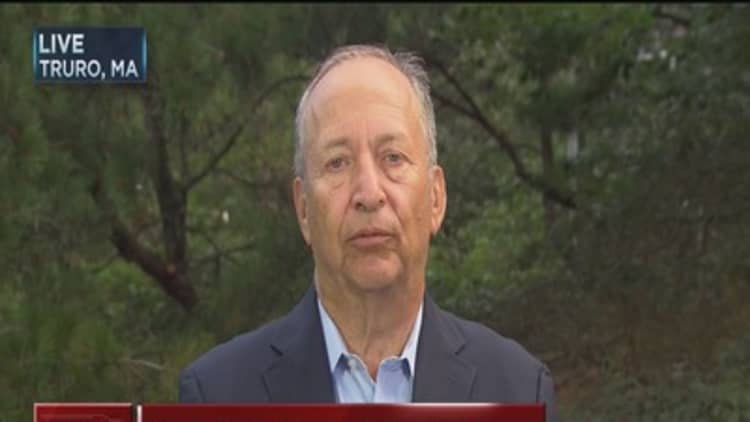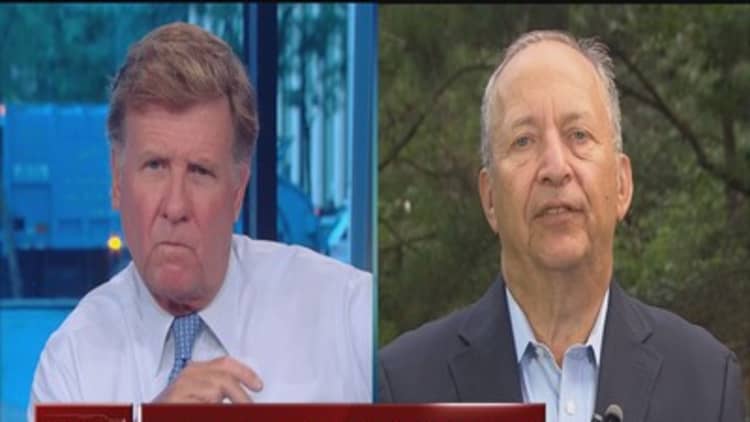
Former U.S. Treasury Secretary Larry Summers said Tuesday that current global conditions that contributed to Monday's selloff represent the type of moment when surprises such as the Asian financial crisis or subprime mortgage bust can occur.
"I'm not prepared to predict that we're in the midst of a crisis," he told CNBC's "Squawk Box." "But certainly the risks feel greater now than they have at moments in the past and I think the orientation of policy, which had been toward resisting overconfidence, now has to again shift toward providing confidence."
Summers said he sees potential for "significant instability" and "substantial risks" associated with current conditions.
Read More Summers: Fed could be making a dangerous mistake
In particular, the increase in volatility to historic levels in the last week after a period of "substantial market tranquility" is cause for concern, he said.
The slowdown in China, its impact on the global economy and commodities markets, general distress in emerging markets, and a disappointing rate of demand growth in industrialized countries have combined to create substantial risk, he explained.

Given the current market turmoil, it would be hard to imagine the prudence of the Federal Reserve raising interest rates.
The central bank has held its benchmark federal funds rate near zero since December 2008. Monday's steep selloff raised new questions about whether the Fed would pull the trigger.
On Monday, Dennis Lockhart, president of the Federal Reserve Bank of Atlanta, said in a speech that he still expected liftoff some time in 2015, but did not reiterate his recent comments that he is disposed to begin hiking in September.
Read More Lockhart expects rate hike this year, does not repeat Sept. call
Summers said he understands the argument that the Fed must raise rates to promote financial market stability, but he said it's too risky to do so in the absence of other factors that can create economic growth.
"Today, with the at 40, it seems to me you have a quite different argument," Summers said, referring to a measure of market volatility. "Today the only argument you really have is, well it's uncomfortable to be at zero."
"Well it is uncomfortable in some way, but my fear is that the new reality in an economy where the labor force isn't growing very fast, where productivity growth is slower, where capital goods are much cheaper, where the nature of production has shifted ... you may need those kinds of low interest rates to be able to maintain a reasonable level of growth."


